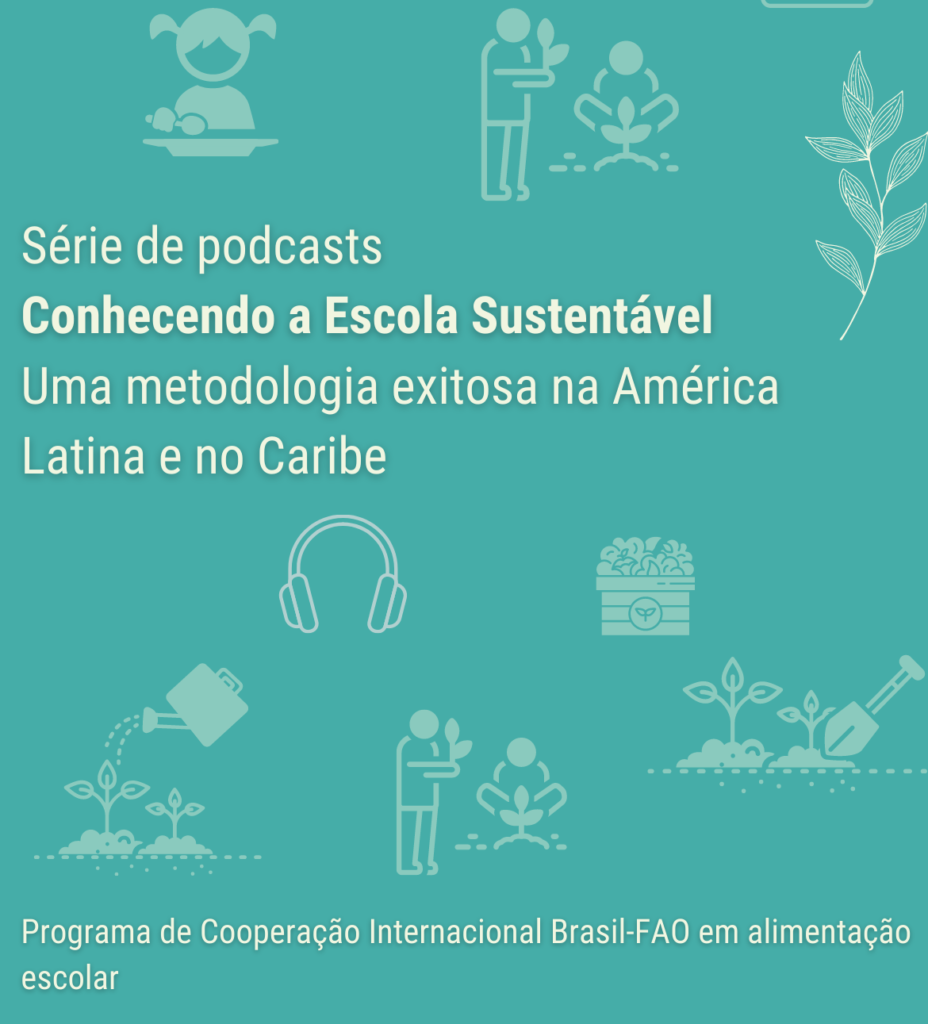“Getting to Know the Sustainable Schools” brings a series of interviews with experts who explain each component of this methodology that impacts over 1.6 million students.
Brasília, Brazil, June 15, 2023 – The Sustainable School Feeding Network (RAES) has launched a podcast series on the importance of the Sustainable Schools methodology. The RAES Network was created by the Brazilian government and is executed by the Brazil-FAO International Cooperation Programme through the project Consolidation of School Feeding Programs in Latin America and the Caribbean.
Currently, the Sustainable Schools methodology benefits 1.6 million students in 536 municipalities across 13 countries in the region, providing an important market for 9,356 farming families through public procurement to 23,385 schools.
The project is a trilateral South-South cooperation initiative jointly implemented by the Brazilian Cooperation Agency of the Ministry of Foreign Affairs (ABC/MRE), the National Fund for Educational Development of the Ministry of Education (FNDE/MEC), and the Food and Agriculture Organization of the United Nations (FAO).
The series “Getting to Know the Sustainable Schools” consists of eight episodes in Spanish, one in English, and two in Portuguese. All episodes will be available for free on platforms such as Spotify, Soundcloud, and RAES, with each program released on Thursdays. The first episode features an interview with Fernanda Pacobahyba, president of the National Fund for Educational Development (FNDE/MEC).
The podcast series takes into account the increasing popularity of audio platforms to provide knowledge and information to a wider public interested in school feeding. It represents a new information strategy that democratically offers the opportunity to develop and deepen professional skills.
The podcasts can be listened to at alternative times, through any mobile device, quickly and conveniently. The production of this technology involved various stakeholders from different countries, expanding the possibility of reaching diverse audiences, including managers, technicians, farmers, and parents of students.
Najla Veloso, coordinator of the school feeding project, explains that the objective of the podcast series is to share, in a didactic and educational manner, the concept and functioning of Sustainable Schools with all actors involved in this policy, based on its six components. “Through this communication strategy, we aim to stimulate the implementation of the methodology in more schools in the countries of the region and further strengthen national school feeding programmes in Latin America and the Caribbean,” she emphasized.
Sustainable Schools: Experiences built from multiple perspectives and realities.
Created in 2012, the Sustainable Schools methodology is based on the premise that schools are privileged spaces for community convergence and that the socio-economic development of a city is linked to educational inclusion. The methodology involves implementing reference school feeding programmes in selected schools and cities, which is adapted to the reality of each country. It is based on six components considered strategic for these programs.
Each component requires collective decisions from managers at the national, departmental, municipal, and school levels, which also drives innovations in terms of shared, participatory, and horizontal programme management. The components are: 1) interinstitutional and intersectoral articulation; 2) social and community participation; 3) adequate infrastructure for schools; 4) food and nutritional education with school gardens; 5) healthy menus; and 6) public procurement from family farming.



